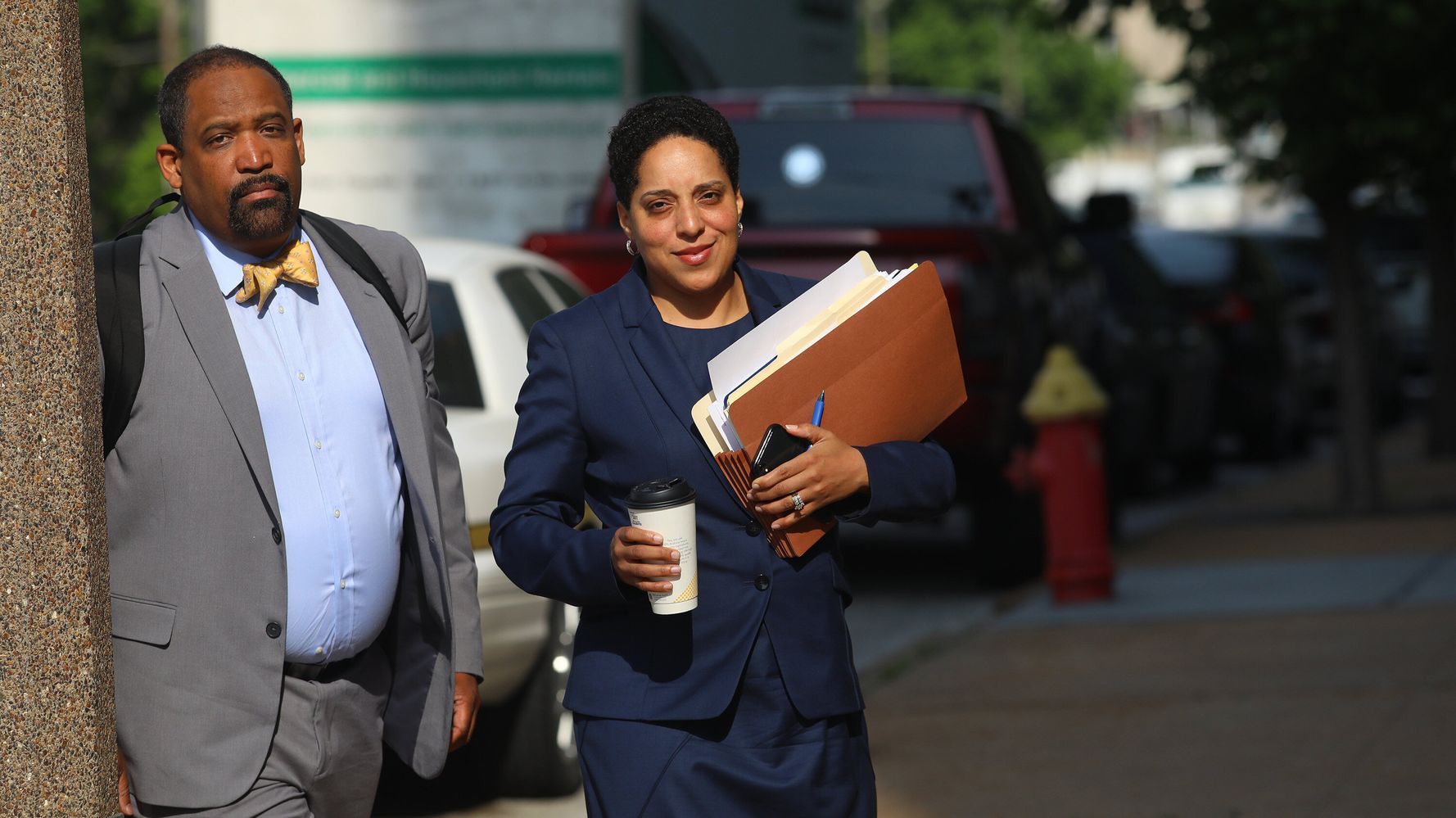[ad_1]

Top St. Louis prosecutor Kim Gardner, the city’s first Black circuit attorney, defeated a former city homicide prosecutor in her Democratic primary race on Tuesday, all but ensuring her reelection in the general election this fall.
Gardner received over 60% of the vote — more than 43,000 votes, compared to challenger Mary Pat Carl’s 28,000.
The incumbent St. Louis circuit attorney deflected a Democratic primary challenge from Carl, a former assistant circuit attorney who was among a wave of St. Louis prosecutors who departed after Gardner’s election. Carl’s campaign focused on violent crime and Gardner’s lower conviction rate, but she also said she’d take a “smart on crime” approach to her job and divert cases from the criminal justice system when possible.
Gardner, 44, first came to office in 2016 along with a wave of progressive prosecutors who sought to break from “law and order” politics and rethink the role of prosecutors in the United States, which has the highest incarceration rate in the world, even as jail and prison populations have contracted in recent years.
She quickly became a target of controversy, including for her decision to charge former Missouri Gov. Eric Greitens (R) with felony invasion of privacy in connection with a photo he snapped of a woman during an extramarital affair, as well as for her list of St. Louis Metropolitan Police officers whose testimony her office wouldn’t rely upon because of integrity concerns.
The St. Louis circuit attorney more recently grabbed national headlines when she charged a white couple who pointed guns at Black Lives Matter protesters marching past their home, a decision that came under criticism from President Donald Trump. Gardner said the couple could participate in a diversion program that would resolve the case, but the charges garnered attention from Republican politicians on the state and national level who said they infringed upon the couple’s Second Amendment rights.
Trump’s press secretary said the president considered the case an “egregious abuse of power,” while Missouri’s Republican governor said the president would like to get involved in the case. The couple, personal injury attorneys Mark McCloskey and Patricia McCloskey, starred in a Trump campaign video.
Gardner said the attacks from the president inspired a wave of racist hate against her, calling the campaign against her “a modern-day night ride” in an interview with The Washington Post.
Earlier this year, Gardner filed suit against the city of St. Louis for its opposition to her reforms, using a provision of the law known as the Ku Klux Klan Act. The complaint alleged the city — along with its infamous local police union — was conducting “a racially-motivated conspiracy to deny the civil rights of racial minorities by obstructing a government official’s efforts to ensure equal justice under law for all.”
In her 2016 race, Gardner had the backing of some activists who rose to prominence in the 2014 unrest in nearby Ferguson, which brought national attention to criminal justice issues and laid the foundation for the broader movement that swept the nation after the killing of George Floyd in May. Like many progressive prosecutors in primary races across the nation, Gardner also received a boost both in 2016 and in 2020 from a PAC funded by liberal billionaire George Soros, an 89-year-old major funder of progressive causes who frequently draws scrutiny from conservatives.
After Trump’s attack on Gardner, a number of current and former elected prosecutors came to her defense, writing a letter calling for an end to the “hateful and dangerous” attacks on an elected official as she carried out the duties she was elected to perform.
Miriam Krinsky, executive director of Fair and Just Prosecution, which helped organize the letter, said that Gardner had come under “incredibly aggressive and divisive” attacks during her first term as she dealt with high turnover in her office from prosecutors used to the status quo.
“Those challenges run deep, and changing institutions that have done things one way for a long time doesn’t happen overnight,” Krinsky said.
Krinsky said that even as Trump and Attorney General William Barr ―who spoke out against progressive district attorneys even as a reform-minded prosecutor was elected in Barr’s own home county in Virginia last year ― have engaged in “tough on crime” rhetoric, many Americans are open to rethinking how they want to approach crime.
“We’ve seen with each passing election a growing number of candidates calling for a reset of the justice system,” Krinsky said. “It’s a wave that started in 2016, and with each new election more and more voters have come to understand the impact of these elections and have made choices to move away from past ‘tough-on-crime’ approaches that have failed.”
Calling all HuffPost superfans!
Sign up for membership to become a founding member and help shape HuffPost’s next chapter
[ad_2]
Source link

